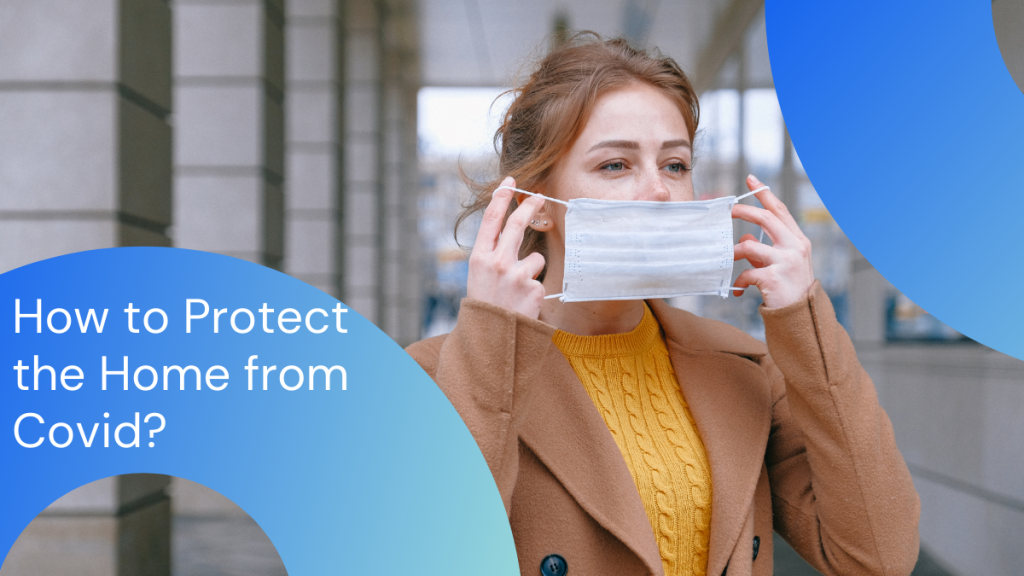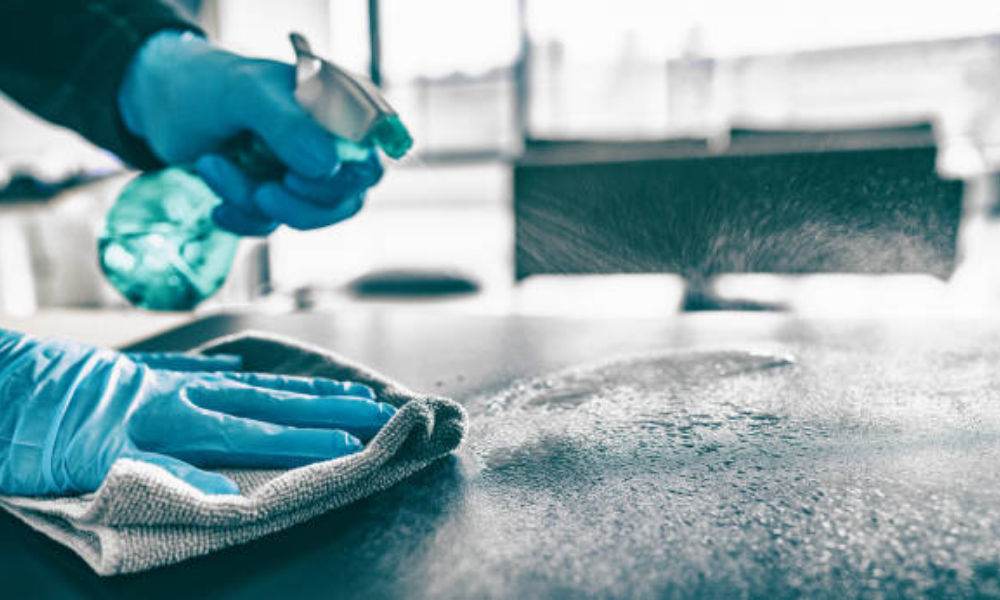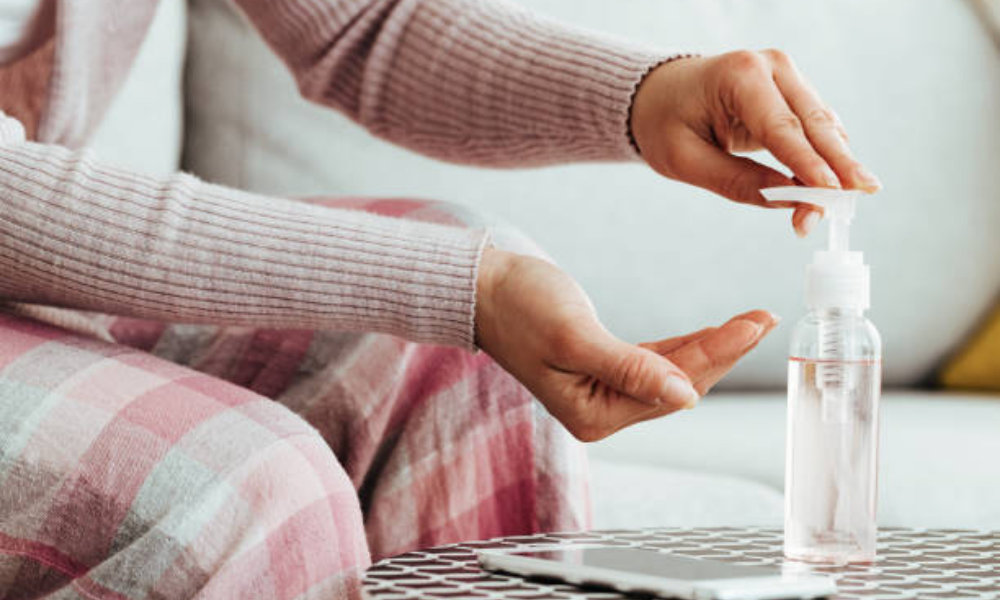
It’s no secret that the novel coronavirus, covid-19, is a serious global threat. The World Health Organization has called it a pandemic, and while the fatality rate is still relatively low, the potential for disaster is high. To protect ourselves and our loved ones from this deadly virus, we need to take precautions.
The most crucial step is to ensure that we are all up to date on the latest information about covid-19. The Centers for Disease Control and Prevention (CDC) has a wealth of information on their website, including tips on protecting yourself, your family, and your community. Make sure you know what the symptoms of covid-19 are, and if you think you may have been exposed to the virus, please seek medical attention right away.
This blog post is meant to be a general overview of some of how you can protect your home from covid-19. It is not meant to be comprehensive, and please consult with your healthcare provider for more specific information.
What Is Covid?
Covid-19, also known as SARS-CoV-2, is an airborne virus that causes severe acute respiratory syndrome (SARS). It was first identified in 2019 and has spread to more than 60 countries. The virus is believed to cause various symptoms, from mild colds to pneumonia, which can be fatal.
There is no specific cure or prevention for Covid-19, so it is essential to avoid exposure. These include washing your hands regularly, avoiding close contact with sick people, and staying home when you are feeling ill. There is also a risk of being infected through contaminated surfaces, so it is important to disinfect your home regularly.
How Does Covid Spread?
Covid is thought to be spread through close contact with respiratory secretions, such as saliva, mucus, or blood of other coronaviruses, such as SARS-CoV and MERS-CoV. They include fever, cough, and shortness of breath. It means that the virus is not spread through casual contact, and you are not likely to catch it from simply being in the same room as someone infected.
However, as Covid-19 is a new virus, more information is needed to determine spread risk. Health authorities are currently investigating the possible transmission routes and are implementing measures to prevent any potential outbreaks.
What Are the Exact Symptoms of Covid?
The symptoms of Covid-19 are similar to other respiratory illnesses, such as the common cold or the flu. They include fever, coughing, and shortness of breath. In severe cases, the virus can lead to pneumonia, which can be fatal.
What Can I Do to Protect Myself from Covid-19?
There are several things that you can do to protect yourself from Covid-19. These include:
- Washing your hands regularly and often is one of the most important things you can do to protect yourself from the virus.
- Avoiding close contact with sick people- if you are around people who are sick, make sure to keep a distance of at least 6 feet.
- Disinfecting surfaces that are commonly touched– this includes things like doorknobs, handles, and countertops.
- Avoid touching your face- the virus can enter your body through your eyes, nose, and mouth.
- Covering your nose and mouth when you sneeze and cough will help prevent the spread of the virus.
- Staying home if you are sick- if you feel sick, stay home and avoid contact with other people.
- Getting vaccinated– although there is no vaccine available for Covid-19 yet, getting vaccinated against other viruses like the flu can help protect you from getting sick.
- Staying informed is crucial to stay up-to-date on the latest information about Covid-19, including steps to prevent its spread.
These are just a few of the things that you can do to protect yourself from Covid-19. For more information, please visit the CDC website.
What Are Some of the Ways You Can Protect Your Home from Covid-19?
You can do several things to protect your home from Covid-19. These include:
Wiping down surfaces with a disinfectant regularly- Covid is supposed to spread through contact with bodily fluids, so it’s essential to keep your surfaces clean. Wiping them down regularly with a disinfectant can help to minimize the risk of infection. It would help if you were incredibly diligent about cleaning the surfaces: door handles, countertops, keyboards, and phones.
Disinfecting your belongings- If someone in your home has contracted Covid-19, it’s essential to disinfect all of your belongings. It includes things like furniture, bedding, and clothing. You can do this by using a disinfectant or placing them in a dryer on the hot cycle for at least 30 minutes.
Staying home if you’re sick- If you’re feeling sick, it’s important to stay home. It will help to prevent the spread of Covid-19. It’s also essential to keep your distance from other people if you are sick. Try to keep at least 6 feet of distance between you and other people.
Always wash hands after coming home- It’s important to always wash your hands after coming home, especially if you’ve been in contact with someone sick. It will help prevent the spread of Covid-19 and your family and your loved ones.
Sanitize everything that is bought from the outside- If you have to go outside, it’s important to sanitize everything you bring inside. It includes fruits, vegetables, and anything that you’ve touched. You can do this by using a disinfectant or boiling them for at least 10 minutes.
Pest management– Pest management can be a great way to protect your home from Covid-19. Make sure to have a professional come and look at your home to see if you have any pests like mice or rats. These pests can carry the virus and spread it to your home.
These are just a few of the ways that you can protect your home from Covid-19.
What Is the Best Household Disinfectant for Surfaces During COVID-19?
There are several different household disinfectants that you can use to protect your home from Covid-19. Some of the most popular ones include:
- Hydrogen peroxide is a popular choice because it’s effective against several different viruses, including Covid-19.
- Isopropyl alcohol is another popular choice because it’s effective against several different viruses, including Covid-19.
- Vinegar- Vinegar is a natural disinfectant, and it’s also affordable.
- Bleach- Bleach is a powerful disinfectant that can kill most viruses. However, it can be toxic if used in large quantities.
You can choose any of these disinfectants to protect your home from Covid-19. It’s essential to read the instructions carefully to use them safely and effectively.
Can People With Mild COVID-19 Symptoms Recover at Home?
There is no one-size-fits-all answer to this question, as the answer may vary depending on the individual. However, people with mild Covid-19 symptoms can recover at home in most cases, especially if they have a sound support system in place.
It’s essential to keep in mind that people with mild Covid-19 symptoms may still spread the virus to others, so precautions are essential. Following are some of the ways you can recover at home with mild covid symptoms:
- Stay hydrated- It is essential to drink plenty of fluids when you have Covid-19. It will help keep your body hydrated and may help to ease some of your symptoms.
- Rest- When you are sick, it is vital to get plenty of rest, and this will allow your body to heal and may help shorten the duration of your illness.
- Stay warm- You may find that you feel cold when you have Covid-19. To stay warm, dress in layers and make sure to keep your home at a comfortable temperature.
- Avoid stress- When you are sick, it is vital to avoid stress as much as possible. Stress can aggravate your symptoms and may delay your recovery.
If you feel ill, it is essential to stay at home and avoid contact with other people. If you have Covid-19 symptoms, please consult a doctor.
Conclusion
Now that we understand how to protect our home from Covid, it is time for everyone to take action. Make sure you follow the guidelines provided by your local government and health officials. Additionally, make sure you take precautions to clean and disinfect your home regularly. If you have any questions or concerns, please reach out to your local health department for more information. Together, we can protect our families and communities from Covid. Hope this article helped you with the information you are seeking!!!











Leave a Reply